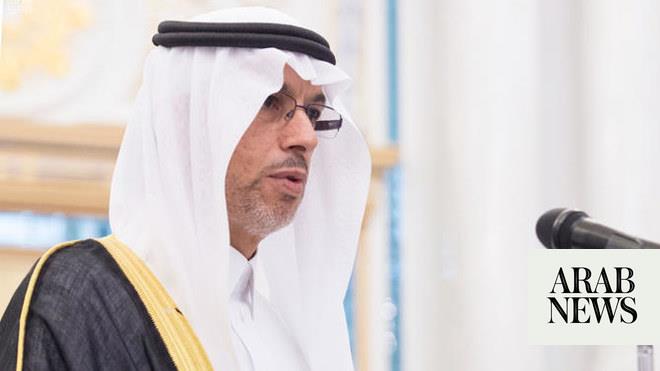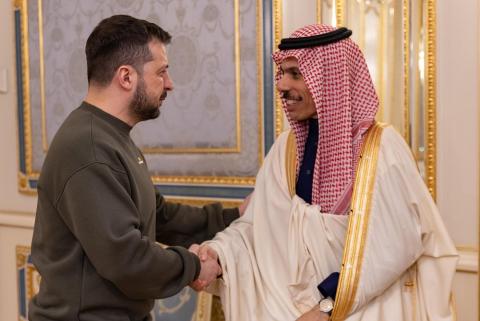
Some casual observers of Saudi Arabia appear to be under the false impression that the Kingdom’s foreign policy is confined to the narrow parameters of two objectives: Maintaining and strengthening its relations with its most important strategic partner, the US, and ensuring that Iran, its primary rival in the region, is not allowed to destabilize the Arab and Islamic worlds and to foment discord among nations. Those are indeed important priorities, but Saudi foreign policy has always been characterized by pragmatism and flexibility.
That has meant that the Kingdom has always sought to maintain good relations with the overwhelming majority of countries around the world. This objective has taken on added importance since King Salman ascended to the throne in 2015 and Mohammed bin Salman became crown prince in 2017. The Saudi leadership has made a concerted effort to maintain relations with old allies and to strengthen ties with new partners. The outreach has included dozens of countries and just about every major region. Late last month, Crown Prince Mohammed made it clear that countries in North Africa and the Maghreb region will not be excluded from the Kingdom’s diplomatic outreach. Their stability and prosperity is important for the Kingdom and the broader international community.
Crown Prince Mohammed embarked on a multi-nation tour both on his way to the G20 summit in Buenos Aires, Argentina, and after it was concluded. The visits included to close allies like the UAE, Bahrain and Egypt. However, the crown prince’s visits to Tunisia, Mauritania and Algeria emphasized that Saudi Arabia considers strengthening relations with these Maghreb nations to also be important.
The first Maghreb nation Crown Prince Mohammed visited was Tunisia, where he and his delegation met with President Beji Caid Essebsi and other senior officials. In comments to the press, the two leaders expressed warm sentiments toward each other on a personal level, with Crown Prince Mohammed referring to Essebsi as “like my father.” The warm relations between the two recalls the historic meeting between the late Saudi King Abdulaziz, the founder of modern Saudi Arabia, with Tunisian leader Habib Ben Ali Bourguiba in 1951, as Tunisia began its “stages” policy that would see it gain independence from France. Media reports also indicated there was a Saudi offer of a $500 million loan and financing of two projects worth $140 million.
Tunisia and Algeria, in particular, are vital to the international community’s efforts to eradicate terrorist groups and militant organizations; a global campaign in which Saudi Arabia plays a pivotal role.
Fahad Nazer
In Mauritania, perhaps the Arab country that receives the least attention in the Western media, officials from the two nations also expressed their commitment to maintaining strong relations. The Kingdom committed to building a fully equipped hospital in Nouakchott and signed three agreements related to double taxation, water and sanitation, and wildlife preservation.
High-level meetings also took place in Algeria. Here, the two countries launched five partnership projects within the framework of the 14th session of the Saudi-Algerian Business Council. The projects relate to the manufacturing of inorganic chemicals, metal processing and pharmaceuticals.
The two countries also announced the formation of a higher coordination council, chaired by Crown Prince Mohammed and Prime Minister Ahmed Ouyahia. The council will seek to strengthen cooperation in the “political, security, economic, trade, investment, energy, mining, cultural and education fields, as well as combating terrorism and extremism.”
The visits stressed more than just good relations between the Kingdom and Tunisia, Mauritania and Algeria. In comments after the high-level meetings, leaders and officials stressed the important leadership role that Saudi Arabia plays in the Arab and Islamic worlds, and the Kingdom also emphasized the importance of the three nations in maintaining the political stability and prosperity of the Maghreb region. Tunisia and Algeria, in particular, are vital to the international community’s efforts to eradicate terrorist groups and militant organizations; a global campaign in which Saudi Arabia plays a pivotal role.
Saudi Arabia realizes that its custodianship of the Two Holy Mosques has bestowed on it an eminent status in the Islamic world, and its oil wealth has enabled it to assist other nations in the region with their development needs. However, the Kingdom’s leadership has long understood the nature of today’s global economy and the interconnectedness between nations. Working toward bilateral, multilateral and global solutions highlights the leadership’s pragmatism and its commitments to peaceful coexistence and prosperity for all.
Fahad Nazer is a political consultant to the Embassy of Saudi Arabia in Washington and an International Fellow at the National Council on US-Arab Relations. He does not represent or speak on behalf of either organization. Twitter: @fanazer
Disclaimer: Views expressed by writers in this section are their own and do not necessarily reflect Arab News" point-of-view












